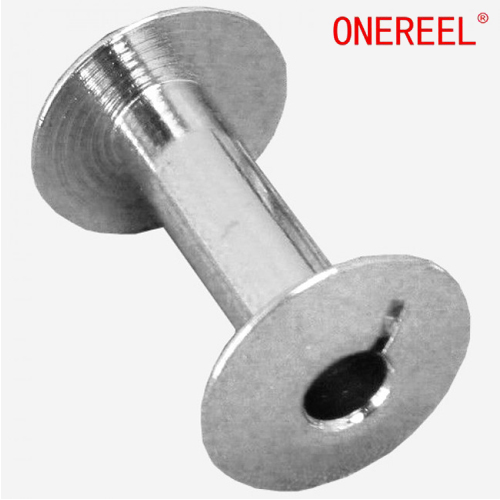What Are The Advantages of Aluminum Spool
2023-10-18
Aluminum spools offer several advantages in various industries and applications due to the unique properties of aluminum as a material. Here are some of the key advantages of using aluminum spools:
1. Lightweight: Aluminum is significantly lighter than materials like steel, making aluminum spools much easier to transport, handle, and maneuver. This is particularly advantageous in industries where weight savings are important, such as aerospace, shipping, and portable equipment.
2. Corrosion Resistance: Aluminum has a natural ability to form a protective oxide layer on its surface, which provides excellent resistance to corrosion. This makes aluminum spools suitable for outdoor and marine environments where exposure to moisture and saltwater is a concern.
3. High Strength-to-Weight Ratio: While aluminum is lighter than steel, it still offers a favorable strength-to-weight ratio. This makes aluminum spools capable of withstanding substantial loads and stresses without being excessively heavy.
4. Conductivity: Aluminum is an excellent conductor of electricity, making aluminum spools suitable for applications involving electrical cables or wires. The conductivity of aluminum can help reduce resistance and energy losses in electrical systems.
5. Ease of Machining: Aluminum is relatively easy to machine and work with, which can lead to reduced manufacturing costs and shorter production times for aluminum spools compared to materials that are more challenging to process.
6. Recyclability: Aluminum is highly recyclable and can be melted down and reused repeatedly without significant loss of its properties. This makes aluminum spools a more sustainable choice, aligning with environmental concerns and recycling efforts.
7. Aesthetic Appeal: Aluminum has a sleek and modern appearance that can enhance the visual appeal of products that use aluminum spools. This can be important in consumer-facing applications or industries where aesthetics matter.
8. Non-Magnetic Properties: Aluminum is non-magnetic, which can be advantageous in applications where magnetic interference is a concern, such as in certain scientific equipment, electronics, and medical devices.
9. Low Thermal Expansion: Aluminum has a relatively low coefficient of thermal expansion, meaning it expands and contracts less with temperature changes compared to other metals like steel. This property can be beneficial in applications where dimensional stability is critical.
10. Cost-Effectiveness: Depending on market conditions and the specific alloy used, aluminum can often be more cost-effective than other materials like stainless steel. This can lead to cost savings in production and manufacturing processes.
11. Formability: Aluminum can be easily formed into various shapes and sizes, allowing for customization of spool designs to fit specific needs and requirements.
It's important to note that while aluminum spools offer these advantages, they may also have limitations in certain applications. For instance, aluminum's lower density could be a disadvantage in applications that require higher mass for stability. Overall, the choice of spool material should be based on a thorough assessment of the specific requirements of the intended use case.



